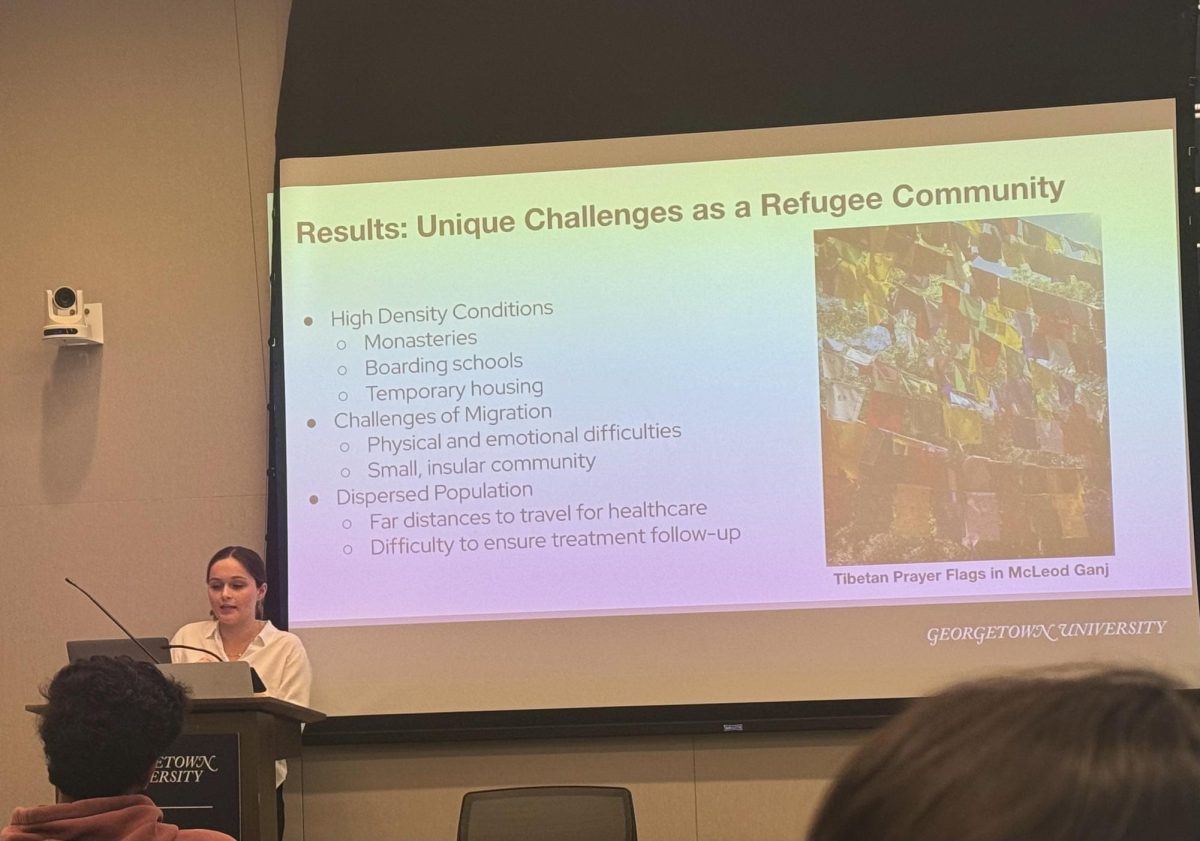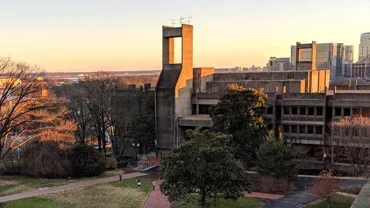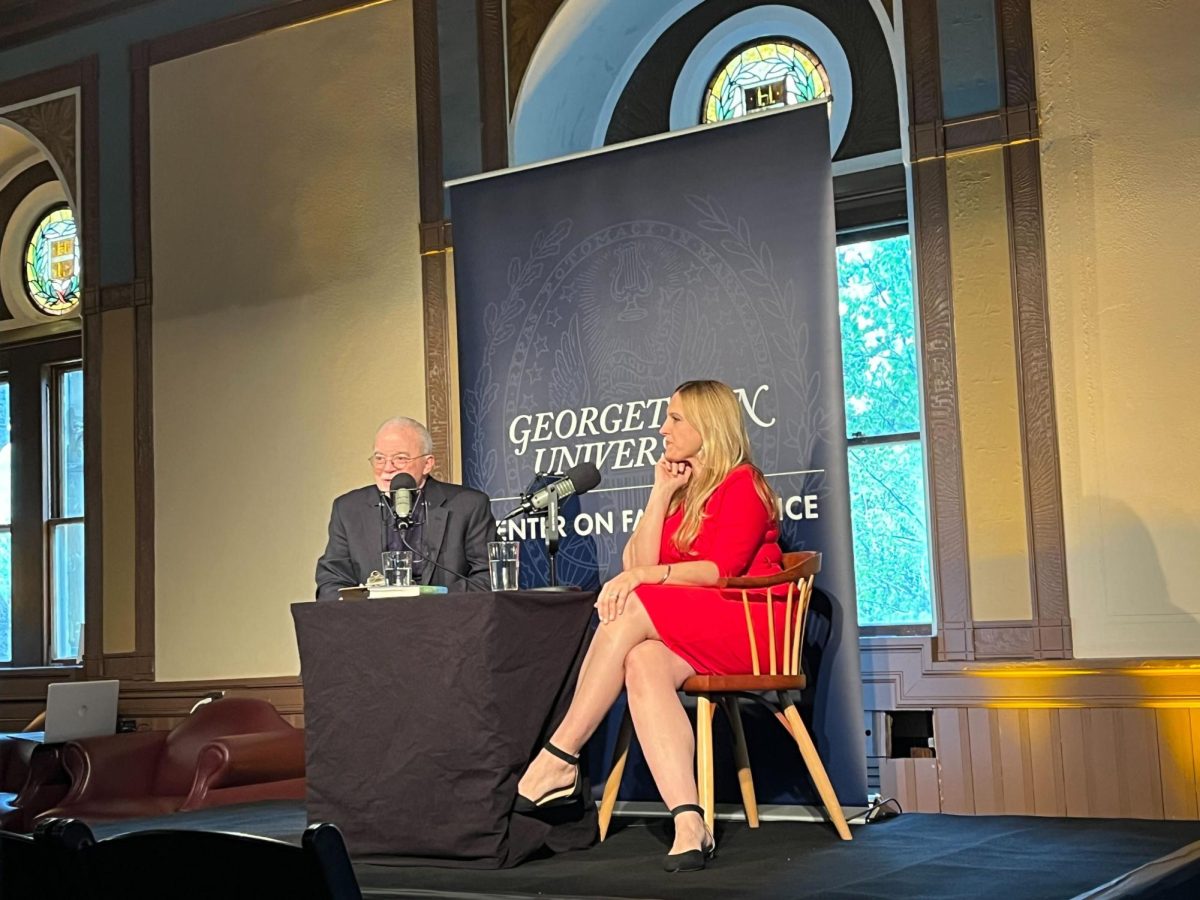While most students begin courses at Georgetown just months after graduating from high school, some accepted students are opting to take a gap year before embarking on their university careers.
The Wall Street Journal reported in December that a Higher Education Research Institute at the University of California, Los Angeles found that 1.2 percent of freshmen at four-year colleges waited a year before enrolling in school.
The choice to take a gap year can reflect a desire to relax after high school, to give meaning and direction to later classroom experiences or to break away from a traditional or limited academic trajectory, according to Georgetown students who took the leap.
For Anne Jamison (SFS ’14), a gap year was a necessary break after four years at an intense high school.
“I really needed a break. … If I’d come to Georgetown straight from high school I would have been burned out,” she said.
After a year abroad as an outdoor education teaching assistant in Australia’s Victorian Alps, Jamison is taking 19 credits per semester in a curriculum inspired by her gap year.
“I had time to decompress and now I’m so excited to work. I came back so excited to start learning again,” Jamison said.
Gabriel Pincus (SFS ’14), who split his gap year between an Israel-based environmental studies program and a backpacking tour of Europe, said that a gap year was a way to break free of the life path students in the United States are expected to follow.
“America sets up this track that’s like a race. When you’re expected to stuff your résumé, go to college, go to law school and get your first job, when do you live anymore?” Pincus said.
Jake Sneeden (SFS ’12) devoted his time in between graduation and convocation to traveling in Australia and New Zealand.
“I knew I wanted to take a gap year my junior year in high school when I was reading Conrad’s ‘Heart of Darkness,’ and it sort of struck me that my experiences that I had had were not raw or powerful, but rather just repeating an old pattern, a worn path,” he wrote in an email.
Some who took gap years said their experiences have provided valuable insights that have enhanced their studies at Georgetown.
Zander Rounds (SFS ’14), who participated in an international development program in Ecuador, China, India and South Africa, said that his experiences have helped him contextualize what he is learning in the classroom.
“Let’s say I’m in [Map of the Modern World] and we’re talking about an issue in India. I’ve been there and seen it and worked with people and talked to people there. Having that context to draw on has enriched my academic experience,” Rounds said.
Pincus said that his year abroad sparked a new interest in sustainable international development, inspiring him to pursue the Science, Technology and International Affairs program at Georgetown.
“It’s very different from what I would have been doing, and I’m so glad for that,” he said.
Greg Miller (SFS ’14) spent a year in Blagoveshchensk, Russia, studying Russian at the local university. He said that his gap year instilled an intrepidness that has helped him to maximize his time at Georgetown.
“The most valuable thing I learned was to never say no, to always go out there and try new things. This has meant that at Georgetown I’ve taken advantage of so many opportunities and lived life to the fullest,” Miller said.
While students who took gap years were positive about their experiences, they highlighted several challenges and said that gap years may not be a good choice for every student. Pincus highlighted the obstacles of his living situation.
“Being a guest for months is a really hard thing. I had to be on my game all the time. It’s dangerous not to be,” Pincus said. “I think it’s true that gap years aren’t for everyone.”
Sneeden said that the wide array of challenges posed by different gap year experiences means anyone can select an experience that will keep him or her comfortable — but only those who want to make the most out of their gap years should take them, he said.
“I think gap years are for anyone who wants to do them, because there is so much variety to what you can do, but if you aren’t ambitious, plan poorly and just lose the year doing nothing, you’re obviously going to be miserable and not take anything away from it,” he said.
While students said the transition from their gap year to the freshman class at Georgetown went more smoothly than expected, they cited certain challenges.
Ivy Otradovec (COL ’14), who visited every continent but one during her gap year, found it difficult to adjust to the structured, regimented lifestyle at Georgetown after a year of freedom.
“I wasn’t used to having any routine or regime. If I loved it somewhere, I could chill there for a month. Suddenly I come here and there’s a random institution trying to enforce deadlines and routines and hours, right down to when the dining hall is open and closed. It seemed insane,” she said.
Pincus said that the contrast between the experiential learning of his gap year and day-to-day classroom life at Georgetown can prove
challenging.
“I get bouts of feeling that I’m not doing anything important here,” he said. “But there’s an absolute value in being in an academic setting, and I see classroom learning in a completely different way.”
Rounds said he was nervous about coming to Georgetown after a year spent without tests or exams, but the transition was smoother than expected because of the intensive nature of his gap year program.
“While I was traveling I had a pretty rigorous curriculum. I was reading as much as I am at Georgetown now, so I was prepared for the academics here,” he said.
Pincus expressed concern that gap years are presented as a less safe path than the traditional one, especially by high school guidance counselors, even if they yield positive results.
“What concerns me is that there are many more people who could manage taking a gap year and could benefit tremendously but don’t do it because guidance counselors in high school present it as a risk,” he said.
While Georgetown supported his decision to take a gap year, Pincus said universities should be more open in backing the option.
“Georgetown should recommend that incoming freshmen do gap years. It definitely doesn’t detract from the college experience at all. It actually adds to it so much,” Miller said.




















